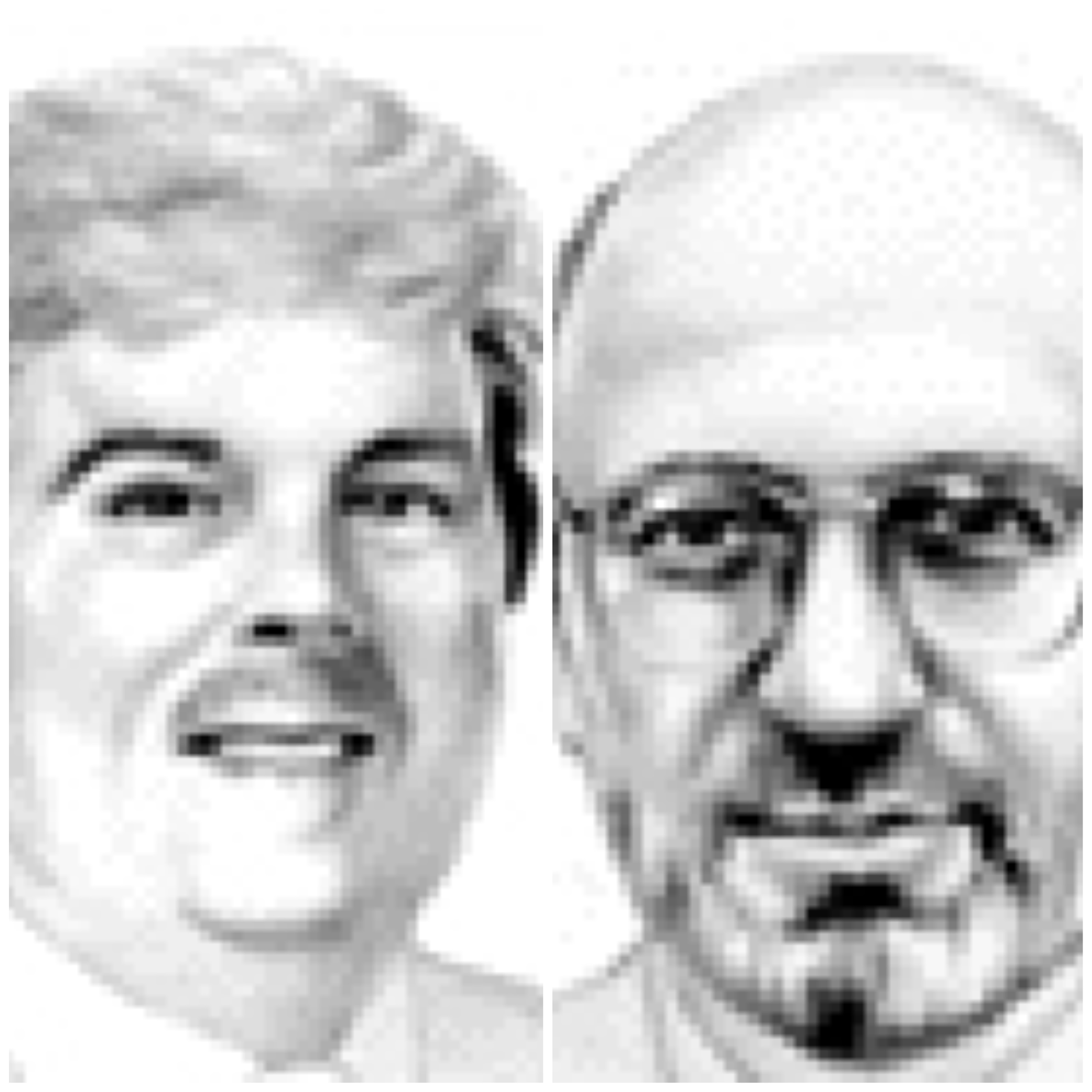Herbert Boyer and Stanley Cohen
Herbert Boyer and Stanley Cohen combined their efforts in biotechnology to invent a method of cloning genetically engineered molecules in foreign cells. Through this discovery and its applications, Boyer and Cohen initiated what is now the multibillion-dollar biotechnology industry.
Their collaboration began at a conference in Hawaii in 1972 when Boyer was a biochemist and genetic engineer at the University of California at San Francisco and Cohen was an associate professor of medicine at Stanford University. The conference's topic was bacterial plasmids – circular segments of DNA that endow the cells carrying them with antibiotic resistance and other medical benefits.
Boyer's lab had recently isolated an enzyme that could be used to cut strings of DNA into precise and "cohesive" segments. The segments would carry the code for a predetermined protein and could also be attached to other strands of DNA. Cohen had developed a method to introduce antibiotic-carrying plasmids into certain bacteria, as well as a method of isolating and cloning genes carried by the plasmids.
Boyer and Cohen decided to pool their resources: Boyer's enzyme would allow Cohen to introduce specific DNA segments to plasmids and use those plasmids as a vehicle for cloning precise, previously targeted strands of DNA. Within four months, the joint effort of Boyer's and Cohen's labs had succeeded in cloning predetermined patterns of DNA, a breakthrough discovery in genetic engineering.

After further refinements, three patents, marketing, and licensing arrangements, Boyer and Cohen had given birth to a huge, international industry. Among the dozens of medical products that their work has made possible are synthetic insulin for those with diabetes, a clot-dissolving agent for heart attack victims, and a growth hormone for underdeveloped children. These and other lifesaving substances are now produced worldwide by Boyer's and Cohen's cloning methodology.
Herbert Boyer was born July 10, 1936 in Derry, Pennsylvania. He received his BS in biology and chemistry from St. Vincent College in 1958 and his MS and PhD in bacteriology from the University of Pittsburgh in 1960 and 1963 respectively. He later went on to Yale university as a postdoctoral fellow in microbial genetics for three years before accepting a teaching position at the University of California San Francisco in 1966. He served as an investigator for the Howard Hughes Medical Institute and co-founded the American biotechnology corporation Genentechin 1976, holding the position as Vice President until retiring in 1991.
Stanley Cohen was born on February 17, 1935 in Perth Amboy, New Jersey. He received his BA in biological sciences from Rutgers University in 1956 and his MD from the University of Pennsylvania in 1960. Cohen joined the faculty at Stanford University in 1968 as an Assistant Professor of Medicine and was appointed as a professor of medicine in 1975 and professor of genetics in 1977. He is currently the Kwoh-Ting Li Professor in the School of Medicine, a position he has held since 1993.
For their inventions, entrepreneurship, and the spirit of teamwork which allowed them their success, Herbert Boyer and Stanley Cohen were awarded the 1996 Lemelson-MIT Prize. Both inventors have also received the National Medal of Science, the National Medal of Technology, and are members of the National Academy of Sciences.


